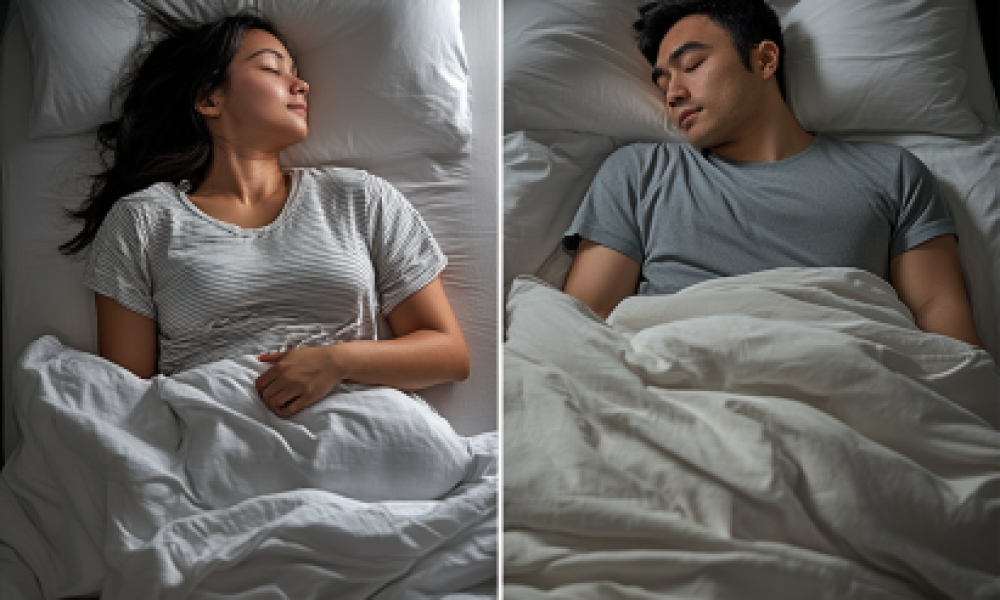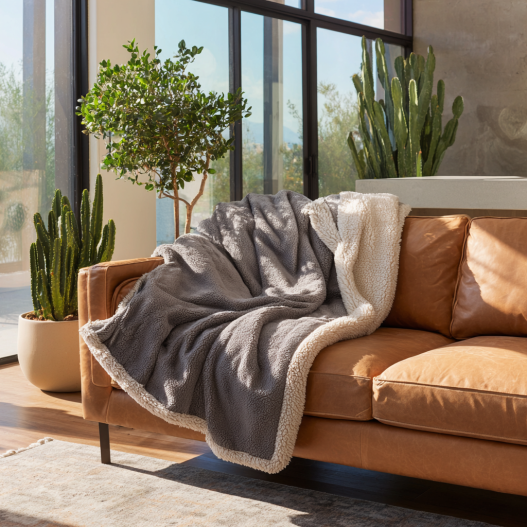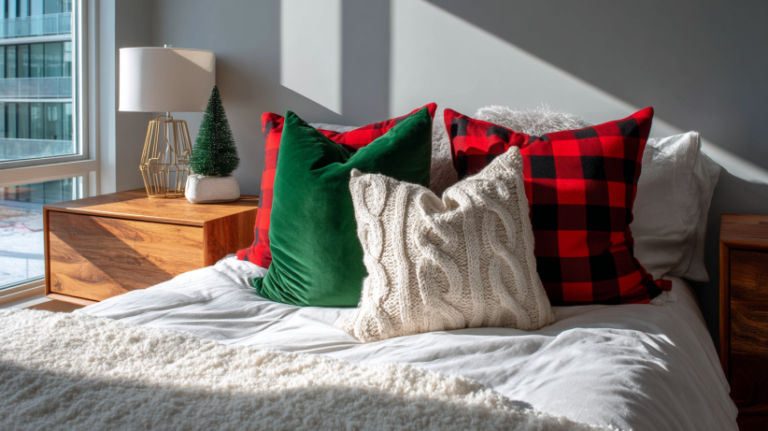How Bed Size Impacts Sleep Quality
Bed Size and Sleep Quality go hand-in-hand—when your sleeping space is too small, it restricts movement and comfort. Choosing the right bed size can dramatically improve your rest. Learn why your mattress dimensions matter and how to find the perfect fit for your needs.
Key Takeaways
- A larger bed reduces movement restrictions and improves comfort
- More space minimizes sleep disturbances for couples and families
- Proper bed size supports better posture and spinal alignment
- Bed size and sleep quality directly influence daily energy and mood
Why Bed Size and Sleep Quality Matter for Restful Sleep
Your bed size plays a significant role in how well you sleep. A bed that’s too small can lead to restricted movement, disturbed sleep from your partner’s motions, and poor posture due to cramped positions. On the other hand, a larger bed provides ample space to move freely, enhances comfort, and promotes healthy spinal alignment.
Several sleep studies, including research from the National Sleep Foundation, confirm that larger beds reduce disturbances and improve sleep satisfaction. When researchers asked couples to compare sleeping in smaller versus larger beds, participants overwhelmingly reported fewer nighttime awakenings and better quality rest in the bigger options. This makes it clear that bed size and sleep quality are not just connected—they are inseparable factors in your overall health.

The Benefits of a Larger Bed for Better Sleep Quality
1. Improved Comfort and Freedom to Move
Whether you’re a solo sleeper who sprawls or a couple navigating nighttime turns, more space equals more freedom. A larger bed reduces disturbances caused by limited space and lets you find a comfy sleeping posture with ease.

- Active sleepers: Enjoy moving freely without interruption.
- Couples: Avoid midnight nudges and elbow jabs.
- Pet owners: Accommodate furry friends without sacrificing comfort.
2. Reduced Sleep Disturbances
A cramped bed amplifies every turn, twitch, or shift. A spacious mattress absorbs motion better, keeping both partners undisturbed even with differing sleep patterns or schedules.
Sleep researchers note that motion transfer is one of the biggest contributors to poor rest among couples. If your partner tosses and turns, a small bed acts like a trampoline, transferring every movement directly to you. In contrast, a king or California king reduces that transfer dramatically, making bed size and sleep quality especially important for light sleepers.

- Reduces motion transfer
- Decreases temperature clashes
- Allows each sleeper their own comfort zone
3. Better Spinal Alignment and Support
Improper posture during sleep often comes from awkward positioning on a small mattress. A wider bed supports neutral spine alignment, crucial for reducing back and neck pain.
In fact, orthopedic specialists often recommend upgrading bed size when treating chronic back pain. When you have space to stretch naturally, your body maintains proper alignment—helping you wake up refreshed instead of stiff.

4. Enhanced Sleep for Families
Kids or pets sneaking into bed? A king-size bed or California king provides the extra room you need to share without sacrificing sleep quality.
Many families underestimate how much of a difference just a few extra inches can make. If your toddler occasionally climbs in after a nightmare, or your dog curls up at your feet, a wider bed ensures you still get the restorative sleep you deserve.
How to Choose the Best Bed Size for Sleep Quality
Assess Your Space
Measure your bedroom carefully and ensure there’s at least 24 inches of walking room around your bed. This prevents the room from feeling cramped and allows free movement.

Consider Your Sleep Habits
- Do you toss and turn at night?
- Do you share the bed with a partner, kids, or pets?
Think About Future Needs
- Will your family grow?
- Are you planning a bedroom redesign?
Test It Out
Visit a mattress store and lie on different sizes. Bring your partner and try your natural sleeping positions to find the best fit.
Buying online? Look for brands that offer generous trial periods and free returns. This way, you can test whether your new mattress size truly enhances your comfort and supports long-term sleep quality.
Bed Size and Sleep Quality: Finding the Perfect Fit
| Bed Size | Best For |
|---|---|
| Twin (38” x 75”) | Kids, single sleepers in small rooms |
| Full (54” x 75”) | Single adults, guest rooms |
| Queen (60” x 80”) | Couples, individuals who like extra space |
| King (76” x 80”) | Couples, families co-sleeping with kids |
| California King (72” x 84”) | Tall individuals, luxury master bedrooms |
Common Myths About Bed Size and Sleep
- Myth 1: “A bigger bed is always better.” It depends on room size and layout—comfort needs balance.
- Myth 2: “Couples only need a queen-size bed.” Many sleep better in a king, especially if one partner moves a lot.
- Myth 3: “Bed size doesn’t affect sleep.” Studies show that sleep space matters for posture and sleep continuity.
Your bed size isn’t just a furniture choice—it’s an investment in your rest. Bed Size and Sleep Quality are inseparable when it comes to better sleep, less pain, and more energy every day. For more expert resources and buying guides, visit our Cozy Bed Quarters homepage to start creating your perfect sleep setup.
FAQ
- Does bed size really affect sleep?
- Yes! A properly sized bed reduces disturbances and improves posture and comfort throughout the night.
- Is a queen bed big enough for two adults?
- Often yes, but a king-size bed may offer more space and comfort if either partner moves frequently.
- Can a larger bed help with back pain?
- Definitely. Extra space promotes proper alignment and pressure relief, both critical for reducing back pain.
- What if my room is small?
- Opt for minimalist furniture or rearrange your layout to accommodate a larger bed without cramping your space.
Learn more in The Ultimate Guide to Bed Sizes: Queen, Full, and King Compared, Benefits of Choosing the Right Bed Size, and Room Layout Ideas for Better Sleep.
Sources: National Sleep Foundation, Sleep.org: Mattress Sizes
Related Reading from Cozy Bed Quarters
Other Reading We Found Popular























